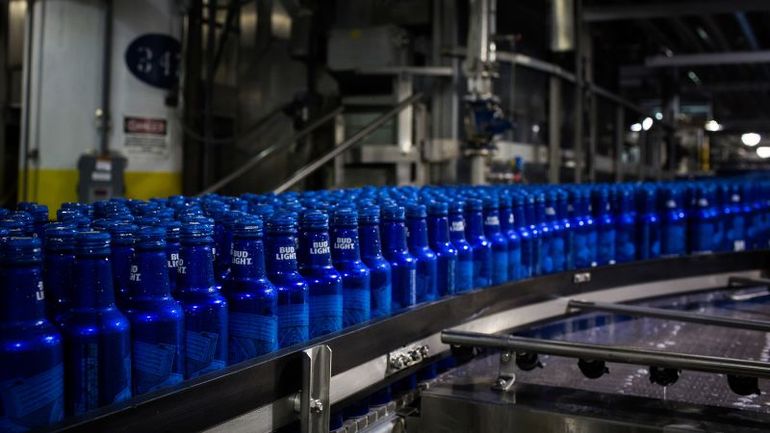
Impact of Bud Light Boycott on Anheuser-Busch InBev's Sales

Anheuser-Busch InBev potentially faced a significant revenue decline, estimated at over $1 billion, following the Bud Light boycott linked to a controversial partnership with a transgender influencer. The repercussions of this marketing move have raised concerns about the financial ramifications for the world's largest brewer.
Anheuser-Busch InBev (BUD) reported record revenues for 2023 Thursday but said its “full growth potential was constrained” by its US business, where sales were hurt by a boycott of Bud Light over a sponsored Instagram post with Dylan Mulvaney.
The world’s largest brewer may have lost as much as $1.4 billion in sales because of the backlash to its brief partnership with a transgender influencer to promote Bud Light beer.
Organic revenue in North America, considered a crucial indicator of operating performance, dropped by $1.4 billion in the previous year. This decline was mainly attributed to a significant decrease in beer sales by volume, particularly driven by a slump in Bud Light sales within the United States. The beer segment accounts for the majority of AB InBev's total revenue.
Following a partnership with Mulvaney in April of last year, Bud Light sales experienced a sharp decline. This collaboration sparked an anti-trans backlash and led to widespread calls for a boycott against the company. Furthermore, AB InBev's lukewarm response to the controversy further upset LGBTQ+ advocates.
Modelo Especial, a Mexican lager, overtook Bud Light as America's best-selling beer in the aftermath of the firestorm, a position that Bud Light had maintained for over twenty years.
Aarin Chiekrie, an equity analyst at online investing platform Hargreaves Lansdown, expressed disappointment in the brand's performance in the US, noting a significant decline in revenue and market share loss.
On Wednesday, shareholders received positive news as the company reached a preliminary agreement with the Teamsters union in the United States. This agreement successfully prevented a strike by 5,000 workers who were ready to walk out at midnight on Thursday.
In addition, AB InBev expressed optimism regarding the future of its US business.
"Our beer market share in the United States has been steadily increasing from May to December," the company reported.
On the other hand, AB InBev's Asia business, Budweiser Brewing Company APAC, saw its shares drop by almost 7% in Hong Kong on Thursday. This decline was attributed to a decrease in profits due to a one-time customs charge in South Korea.
Overall sales volumes in China also fell in the fourth quarter, even as sales of premium brands grew in the double digits, AB-InBev said.








